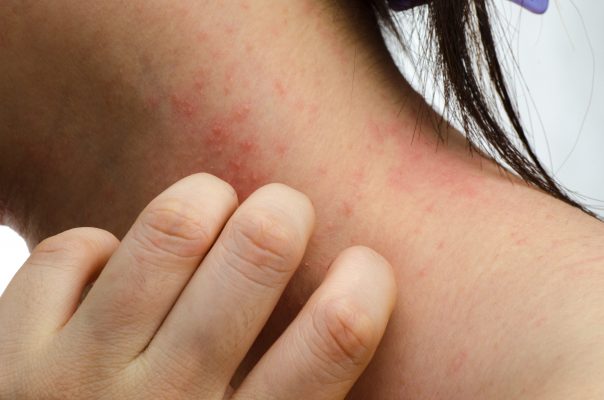Don’t let eczema spoil summer fun
Summer means fun in the sun. But for many, it also means managing exposed skin affected by eczema, an itchy, scaly skin condition that impacts people of all ages. Symptoms can be stressful and linger for years.
Eczema, also called atopic dermatitis, more often affects children but can occur at any age. Approximately 10%-20% of all infants will develop it. While nearly half will outgrow the condition or have significantly fewer symptoms as they age, many people will continue to experience it throughout their adult lives.
The rash can develop on any part of the body, but usually strikes the hands, elbows, knees and face, and frequently occurs in folds of skin. Among darker-skinned people, eczema can also alter pigmentation, making the affected area change colors.
Eczema is not just managing itch, it’s emotionally draining
“The emotional impact can be as devastating as the physical symptoms for patients,” says Emily Rubenstein, DO, a board-certified dermatologist who serves as the director of the Swedish Skin Institute, part of the Swedish Covenant Hospital campus in Chicago. “The condition is often associated with poor sleep, low self-esteem, and frustration because treatment is rarely simple, immediate or without side effects.”
Eczema is characterized by red, dry, itchy skin that can become blistered, crusted, scaly and thickened. Patients may face extreme itching at night when they are trying to sleep. The rashes can disrupt day-to-day life, preventing patients from wearing certain clothes or makeup. For some, the rash develops on the face, causing it to appear red or blotchy.
While the condition may resemble other rashes like poison ivy, it is not contagious.
With atopic dermatitis, the skin fails to hold in moisture, becomes dry, then inflamed, itchy and often infected, according to the American Osteopathic College of Dermatology.
Most often, it is triggered by contact with certain substances or stressful situations. This might include soaps, detergents, particular foods, stress, and even weather.
Doctors still do not fully understand what causes eczema. But, they believe it is related to a gene variation that impacts the skin’s ability to retain moisture. The condition can run in families and often occurs in people who also have allergies.
Treatments are evolving
No cure has been found for atopic dermatitis but treatments and self-care can relieve itching and prevent new outbreaks.
For some, chlorinated pools offer a soothing effect similar to another surprising treatment: bleach baths.
Made up of household bleach diluted by a full bathtub of water, regular soaks can help prevent flares.
Moisturizing creams, or emollients, as well as topical steroids and antihistamines, may also provide relief—but long-term use of steroids is not recommended. Physicians advise avoiding harsh soaps, moisturizing regularly, and being aware of potential triggers.
“Continual research is happening in eczema and new and innovative therapies are on the near horizon,” says Dr. Rubenstein. “Advancements include biologics that can help severe eczema patients manage the rash and itch of the disease.”
Each patient is different. Speak with your physician to understand your best course of treatment.

